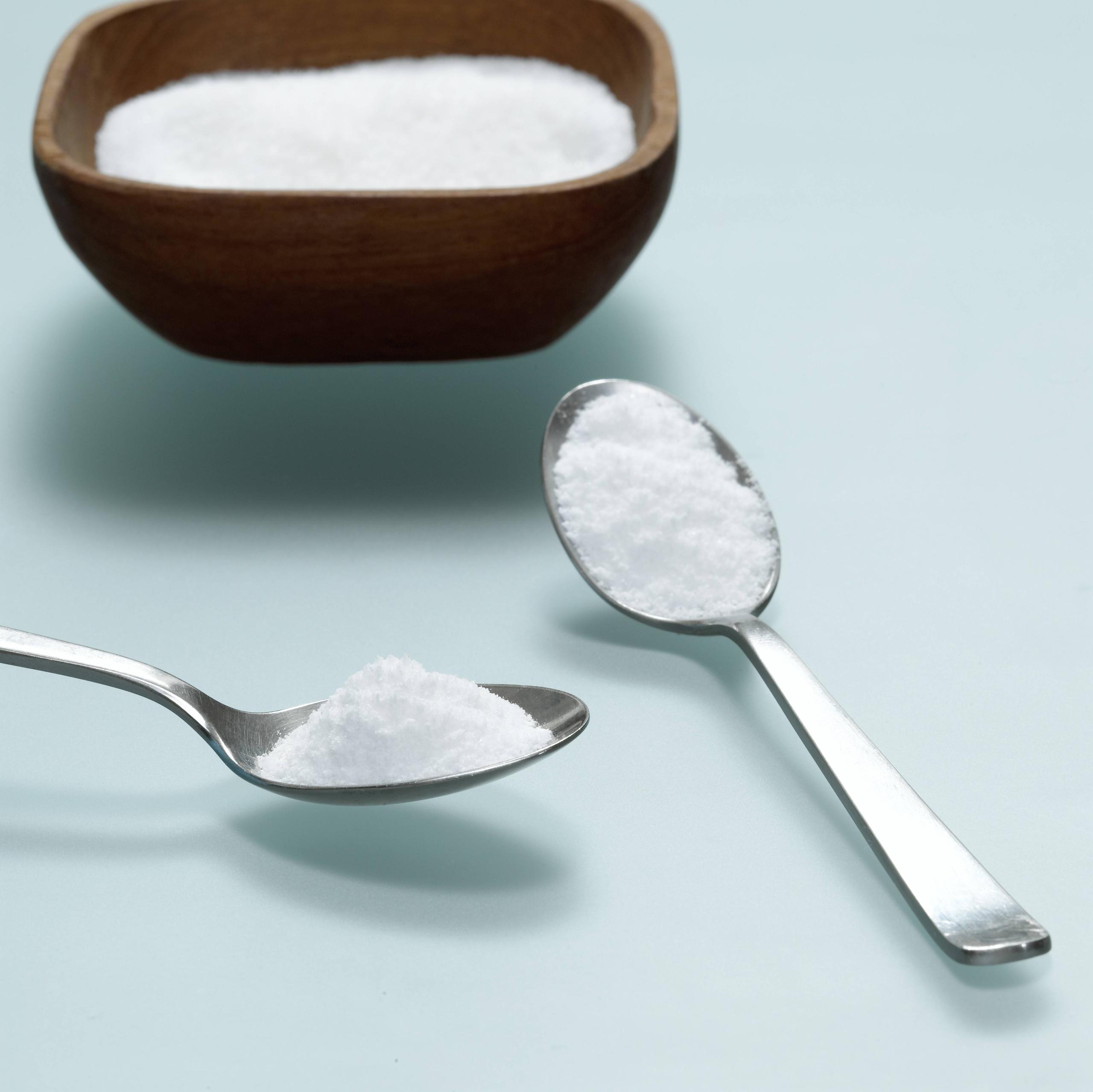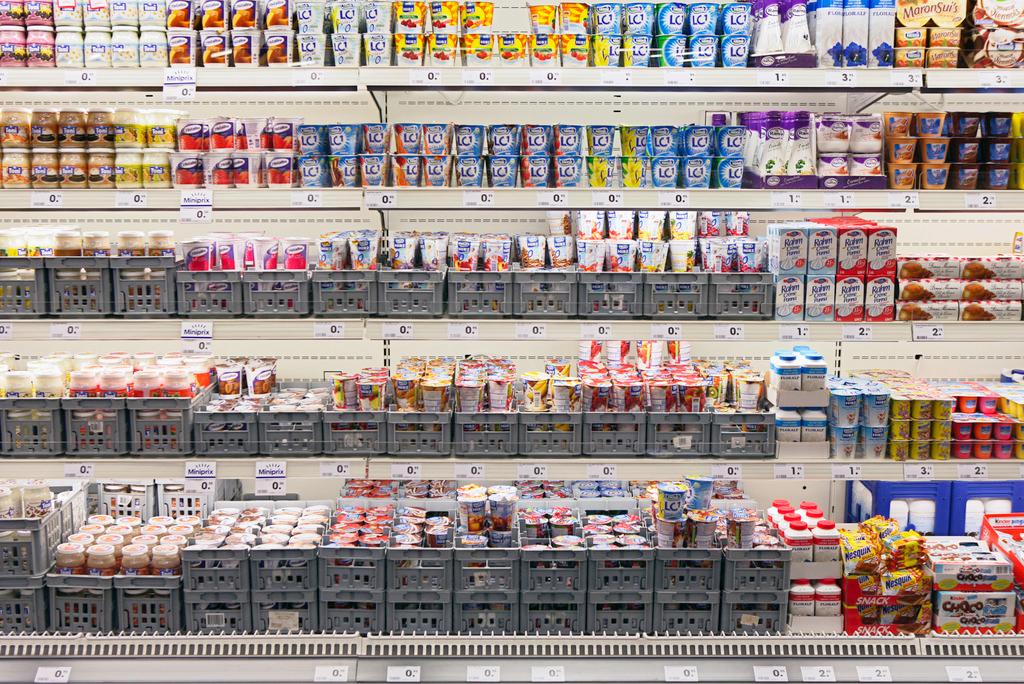Swiss still eat too much salt

The salt content of bread has been reduced in Switzerland – in a voluntary measure worked out between the industry and the government. But with Swiss salt intake still too high, are such steps the way forward?
Average Swiss salt consumption stands at 9.1g a day per person (women 7.8g/day, men 10.6g/day) – or the equivalent of two teaspoons of salt per day. This is far over the World Health Organization recommended 5g/dayExternal link but around the same as most of Switzerland’s neighbours.
Recently published national “bread monitoring” results External linkfrom the Federal Food Safety and Veterinary Office show that the average salt content in bread dropped from 1.74 grams of salt per 100g bread in 2011 to 1.46g/100g in 2014, but half of the analysed white and wholegrain breads were still above the recommended 1.5g/100g.
“At the same time, the study showed that at the moment there’s bread on the market with a salt content of 1.2g and even lower,” commented Liliane Bruggmann, head of nutrition at the Federal Food Safety and Veterinary Office. This shows that there is a market for low-sodium bread, and it would be possible to reduce, stepwise, the salt content even further, she added.
Processed food
“70-80% of our daily food is based on processed or semi-processed food products and they contain salt – so bread, cheese, also processed meat, sausage, ready sauces. Bread and baked goods represent at least 20%. That’s why salt intake is relatively high,” Bruggmann explained.
Adding salt when we cook or eat accounts for around 11% extra salt, she added.
Hence why the Federal Food Safety and Veterinary Office has targeted bread in its National Salt Strategy 2013-2016External link, which aims to reduce average salt intake under 8g by the end of 2016. But that target is looking like it won’t be met.
Humans need a little bit of salt in their diet and are designed to retain it for times when salt was scarce, said Michel Burnier,External link head of the nephrology and hypertension service at the University Hospital in Lausanne.
“Now we still have this system to retain a lot of salt in the kidneys, but the amount of salt we eat is really high so our regulation is probably inappropriate to the mount of salt we eat.”
Too much salt can eventually lead to high blood pressure, added Burnier, “one of the main causes of cardiovascular problems and mortality in the developed world”.
Laws?
So what can be done to reduce salt consumption further in Switzerland and are voluntary measures enough? Burnier says in Finland and Portugal salt intake was decreased substantially via new laws. “Here with a voluntary basis, it’s always more complicated because people are afraid that if they do something they will lose part of the market because the others are not doing it, like for bread,” he said.
Portugal and Finland
Finland began working on salt reduction in 1970s. In 1993, mandatory salt labelling was introduced and products containing particularly high levels of salt were also required to have warning labels. This was accompanied by the introduction of a “better choice” logo, supported by the Finnish Heart Association, which identified low-salt options. Daily salt intake in Finland dropped from approximately 12 g/day in the late 1970s to as little as 6.8 g/day among women by 2002.
Portugal made a maximum legal level of less than 1.4g salt/100g bread in 2009 and added VAT on salty products in 2012.
At least 20 countries in the European Region have explicit salt reduction initiatives in place, with at least 11 countries taking action to promote product reformulation.
(Source: WHO, EU)
A voluntary strategy is only right if everybody, including the big supermarkets, applies it, added Burnier, who headed a team of medical experts which produced a report on salt in 2011.External link
What has improved over the past five years is labelling on foods, showing for example that the salt in a certain food would correspond to 30% of your recommended daily intake. A specific label on food salt content could also be a good idea, added Burnier.
“Right path”
Bruggmann says Switzerland is on the right path with the voluntary approach, as the bread results show – and a recent agreement to reduce sugar in breakfast cereals and yoghurts with ten Swiss companies.
“Industry could do more, but we are really at the beginning of the process for salt. We will extend it, and negotiations are starting to include further food products for salt reduction and we will keep on doing this within our action santé public health initiativeExternal link.”
“A legal regulation is out of the question,” Bruggmann said. “We have however, in combination with action santé, already obtained ‘promises of action’ which have been submitted by companies in written form in which they clearly say how much salt in which products they want to reduce. The experience shows that the reduction must be done step by step and must be technologically possible.”
Further labels, including the traffic light label such as in the United KingdomExternal link, which gives high salt or fat content a red colour, are off the table. “We started this label discussion four to five years ago and had drawn up a proposal for a ‘healthy choice’ label but this was rejected by the industry and consumer organisations,” Bruggmann told swissinfo.ch.
She still hopes to achieve the 2016 salt objective, but admits that “we still have some work to do by bringing on the long term the Swiss population’s salt intake into line with the WHO recommendations of 5g of salt per day”.
“We continue to follow two approaches: firstly in collaboration with the industry to reduce the level of salt in processed foods and in the catering sector; secondly to raise people’s awareness and strengthen personal responsibility. We are aware of the fact that a change in behaviour needs years.”
Industry: aware
The Swiss food industry federationExternal link said its members were aware of the salt issue. Under the voluntary policy, “many food producers have reduced the salt content of their products in recent years and continue to work on optimising their recipes,” said a statement sent to swissinfo.ch.
A main issue is the “sensory acceptance” of customers to reduced salt products. It, too, said that experience from other countries showed that successful and sustainable salt reduction had to take place in small steps, which correspondingly takes a lot of time.
In terms of labels, most products now have a label indicating how much salt or fat content there is. But the usefulness of indicators like traffic light labels is controversial, the federation added, as they can be confusing to the consumer.
In addition, a label as such cannot guarantee healthy eating because the whole food intake is decisive in how much of a particular ingredient, such as salt, is eaten, it argued.
For Burnier, “we need real actions”. He suggests industry could simply reduce salt by 10% in products and not necessarily inform customers (more than 20% reduction changes the taste). So people would reduce salt intake across the board without knowing it. “If everybody does that, it would be really effective,” the professor said.
Potassium
Medical literature suggests that we should not just focus on sodium (salt), says Michel Burnier. Potassium intake is also very important.
People do not eat enough potassium – found fruit, vegetables and nuts – but there is evidence that increasing our intake reduces blood pressure and cardiovascular risk, especially of a stroke. Even if potassium is increased and salt is not reduced, there can be a favourable effect.

In compliance with the JTI standards
More: SWI swissinfo.ch certified by the Journalism Trust Initiative












You can find an overview of ongoing debates with our journalists here . Please join us!
If you want to start a conversation about a topic raised in this article or want to report factual errors, email us at english@swissinfo.ch.